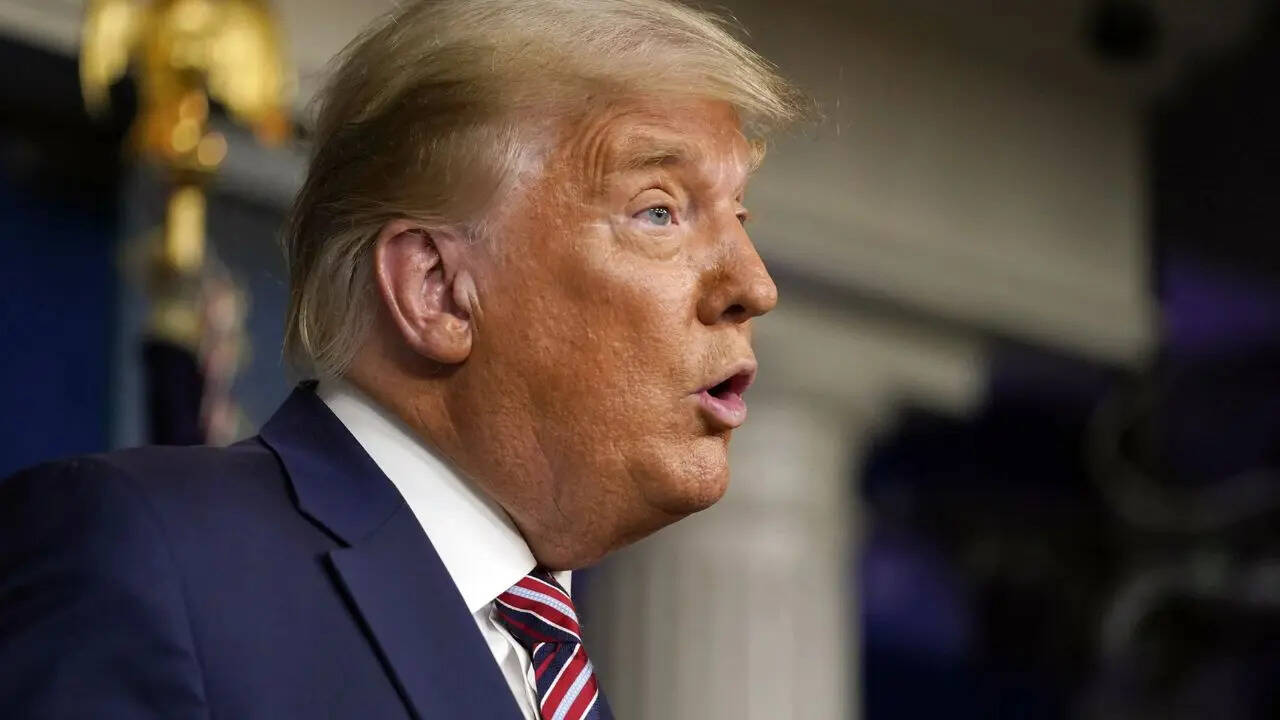Health
Trump Imposes 100% Pharma Tariffs, EU and Japan Exempted

US President Donald Trump has announced a significant shift in trade policy, imposing a 100% tariff on all imported branded and patented medicines unless manufacturers establish production facilities in the United States. This decision, made public on March 15, 2024, is part of an effort to bolster domestic pharmaceutical manufacturing and reduce reliance on foreign supplies. However, the European Union and Japan will be exempt from these tariffs due to existing trade agreements, leaving the United Kingdom to face the full impact of this policy.
In a clarification issued shortly after Trump’s announcement, the White House confirmed that established trade frameworks with the EU and Japan will limit their pharmaceutical tariffs to 15%. This means that EU and Japanese firms will not bear the brunt of Trump’s new directive, which is intended to pressure global pharmaceutical companies into onshoring production. The UK, on the other hand, finds itself in a difficult position, as it has not finalized a specific tariff rate with the US, placing its drug manufacturers at a competitive disadvantage.
Trump’s tweet about the tariffs emphasized a clear directive: any company wishing to avoid the hefty levy must be actively building their pharmaceutical manufacturing plant in the US. He specified that companies must demonstrate they are “breaking ground and/or under construction” to qualify for an exemption. This move is part of Trump’s broader strategy to revive American manufacturing and protect jobs, particularly following the vulnerabilities exposed in global supply chains during the COVID-19 pandemic.
The implications for the UK pharmaceutical industry, which boasts major players like GlaxoSmithKline and AstraZeneca, could be severe. A 100% tariff effectively doubles the cost of their products in the US market, threatening their competitiveness and profitability. Analysts warn that unless the UK government negotiates tariff relief quickly, British drugmakers may struggle against European and Japanese competitors, who will continue to benefit from lower or capped tariffs.
European and Japanese officials welcomed the clarification on tariffs, highlighting the effectiveness of their trade agreements with the US. The EU’s earlier framework deal with Washington ensured that tariffs on pharmaceuticals would not exceed 15%, while Japan’s pact guarantees similar treatment, allowing its drug exports to remain more stable in the face of new US policies.
This approach aligns with Trump’s broader trade agenda, which has previously included tariff adjustments on European auto imports. By leveraging aggressive tariff announcements, Trump seems to be using this strategy to extract concessions from allies while promoting domestic industry. The economic incentives for US drugmakers to establish local production facilities could enhance job creation and mitigate risks associated with international supply chains.
The pharmaceutical sector, already navigating regulatory pressures and scrutiny over drug pricing, is responding cautiously to the new tariff landscape. Multinational firms with operations spread across Europe, Japan, and the UK are reassessing their supply chains and considering whether accelerating US manufacturing projects is the only way to maintain market access. Meanwhile, investors are monitoring the situation closely, with US-based pharmaceutical companies seeing slight stock gains amid expectations for increased domestic production, while UK stocks have dipped due to concerns about losing access to the lucrative US market.
Looking ahead, the immediate challenge for the UK government is to advocate for a negotiated tariff cap or to support its pharmaceutical companies in investing directly in US facilities. While EU and Japanese companies appear to have sidestepped the worst of Trump’s tariff initiative for now, experts caution that the evolving nature of these policies means that no nation can take its exemption for granted. As one trade strategist noted, “Exemptions today don’t guarantee exemptions tomorrow,” emphasizing the leverage that Washington holds in these negotiations.
-

 World5 months ago
World5 months agoSBI Announces QIP Floor Price at ₹811.05 Per Share
-

 Lifestyle5 months ago
Lifestyle5 months agoCept Unveils ₹3.1 Crore Urban Mobility Plan for Sustainable Growth
-

 Science4 months ago
Science4 months agoNew Blood Group Discovered in South Indian Woman at Rotary Centre
-

 World5 months ago
World5 months agoTorrential Rains Cause Flash Flooding in New York and New Jersey
-

 Top Stories5 months ago
Top Stories5 months agoKonkani Cultural Organisation to Host Pearl Jubilee in Abu Dhabi
-

 Sports4 months ago
Sports4 months agoBroad Advocates for Bowling Change Ahead of Final Test Against India
-

 Science5 months ago
Science5 months agoNothing Headphone 1 Review: A Bold Contender in Audio Design
-

 Top Stories5 months ago
Top Stories5 months agoAir India Crash Investigation Highlights Boeing Fuel Switch Concerns
-

 Business5 months ago
Business5 months agoIndian Stock Market Rebounds: Sensex and Nifty Rise After Four-Day Decline
-

 Sports4 months ago
Sports4 months agoCristian Totti Retires at 19: Pressure of Fame Takes Toll
-

 Politics5 months ago
Politics5 months agoAbandoned Doberman Finds New Home After Journey to Prague
-

 Top Stories5 months ago
Top Stories5 months agoPatna Bank Manager Abhishek Varun Found Dead in Well









